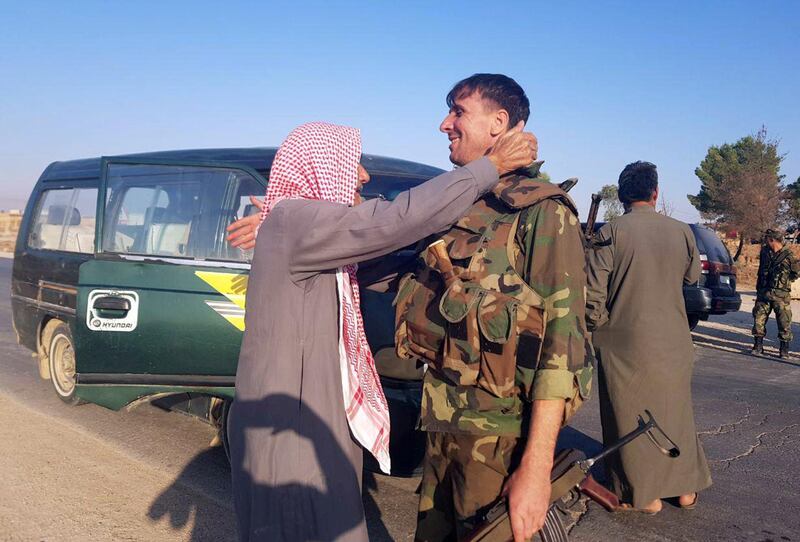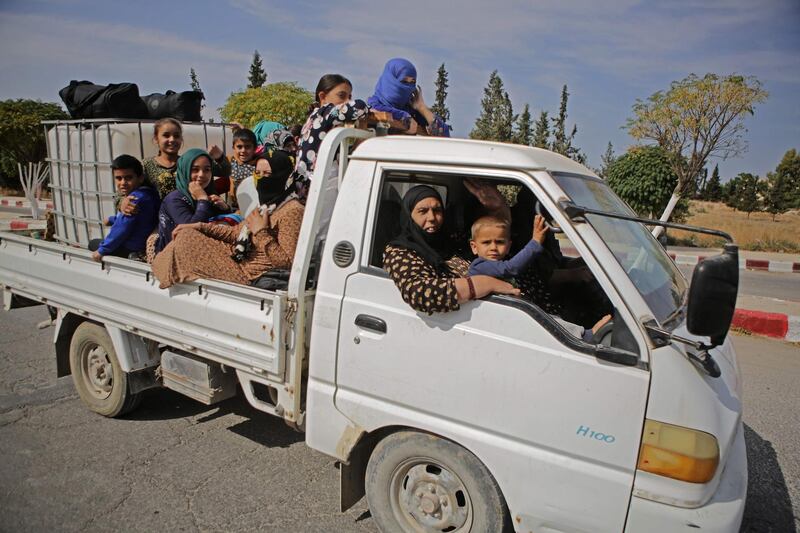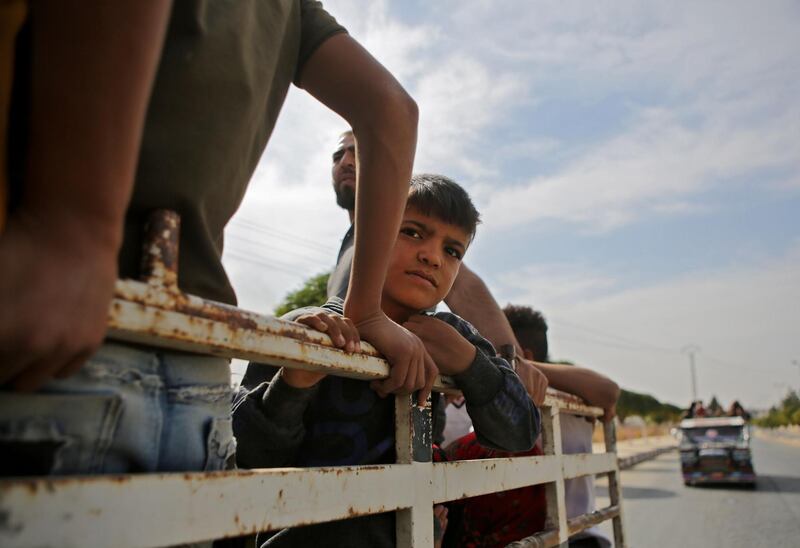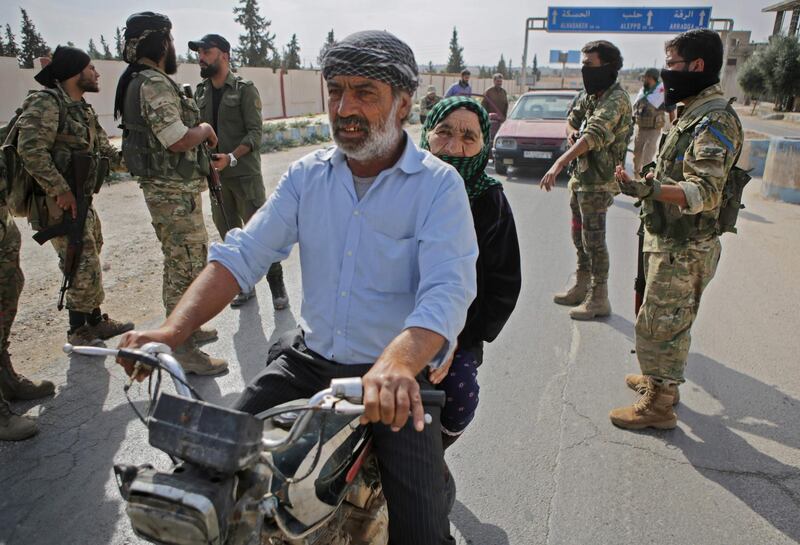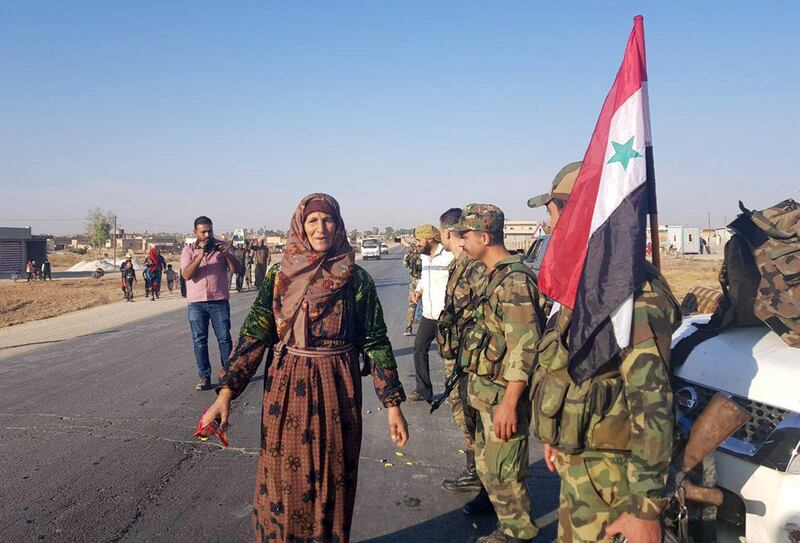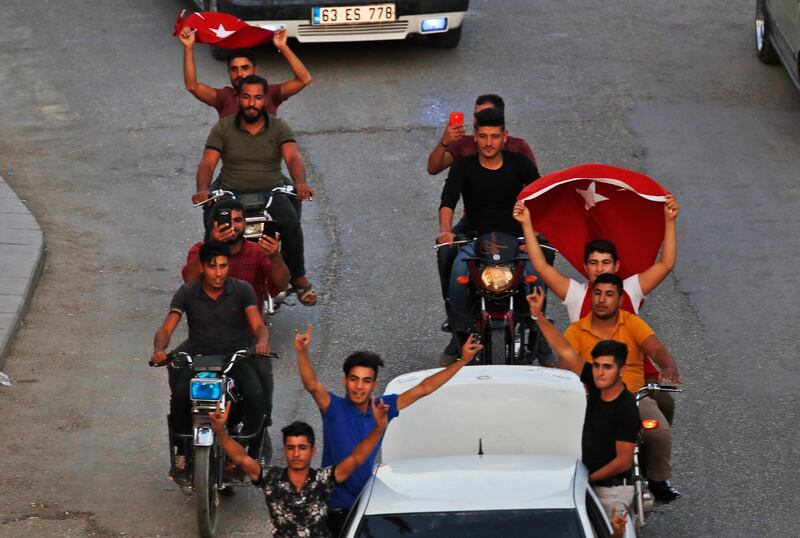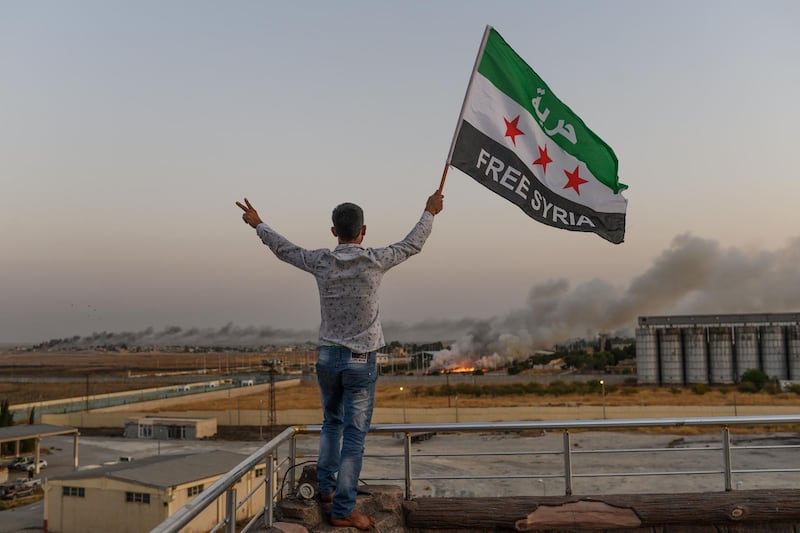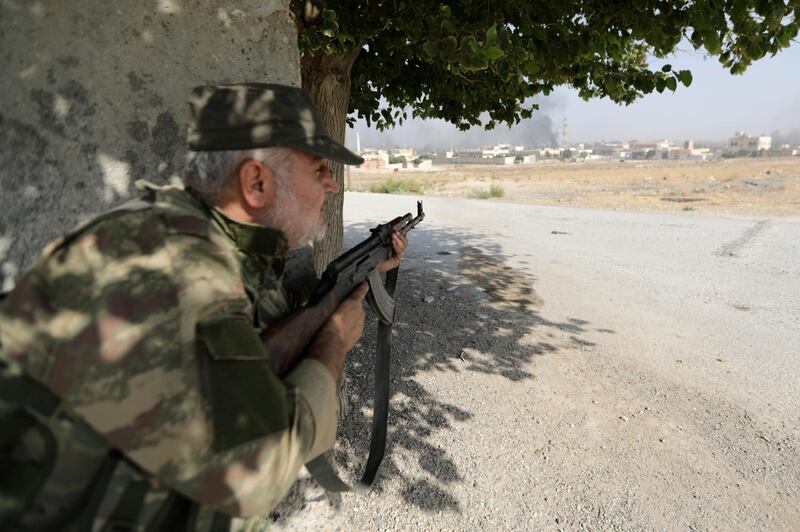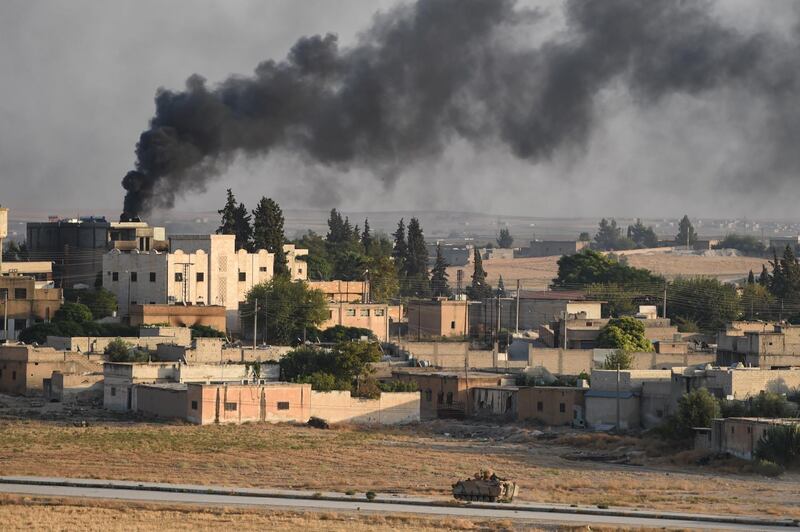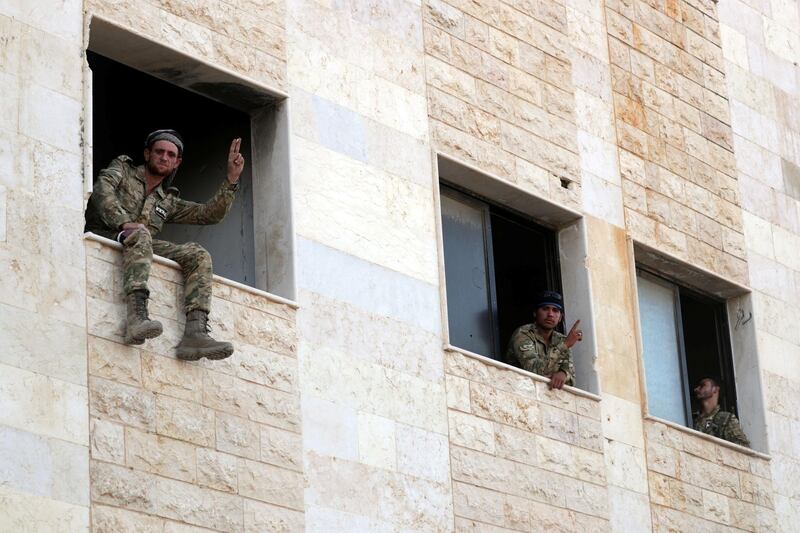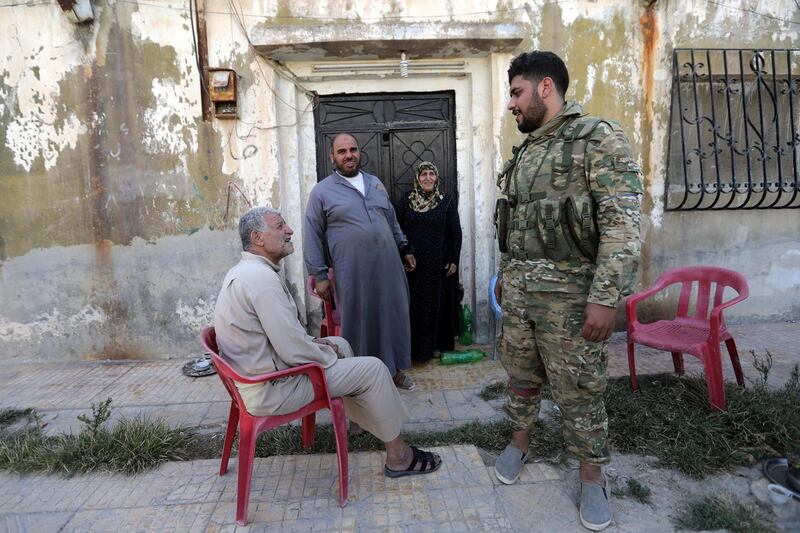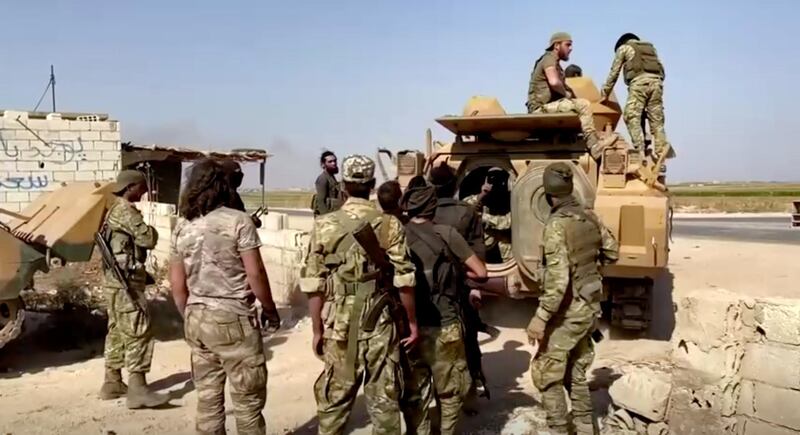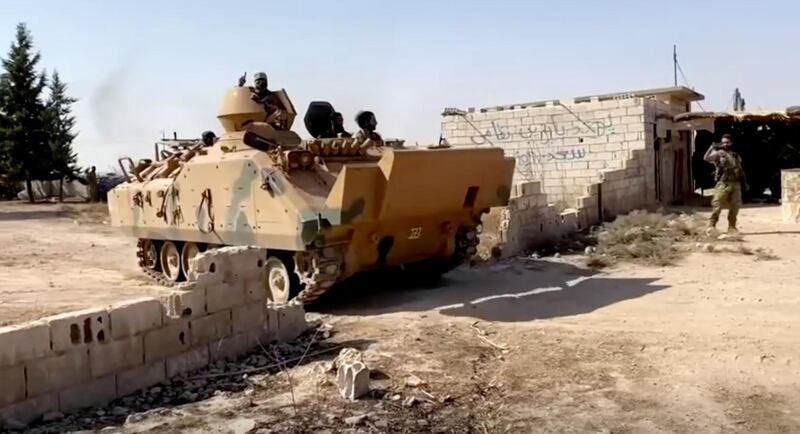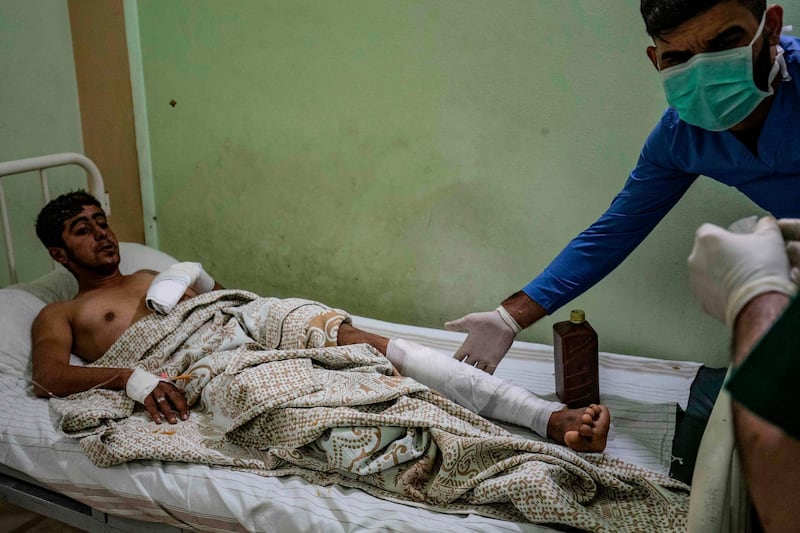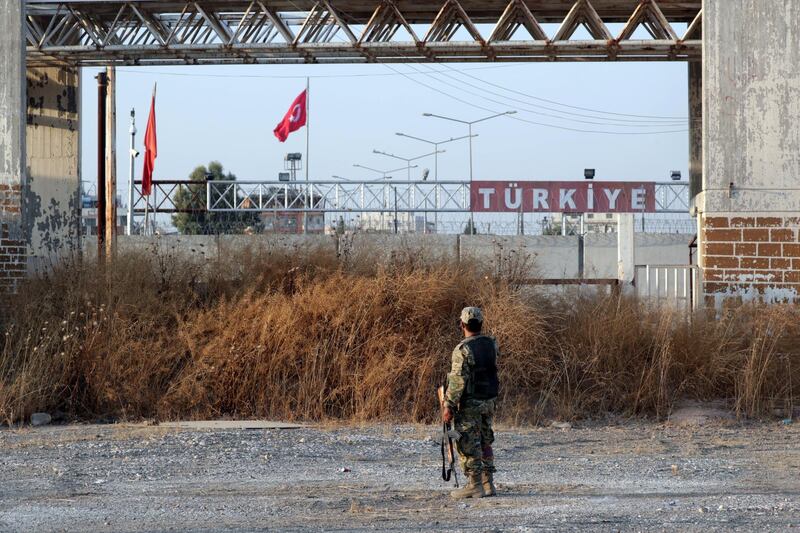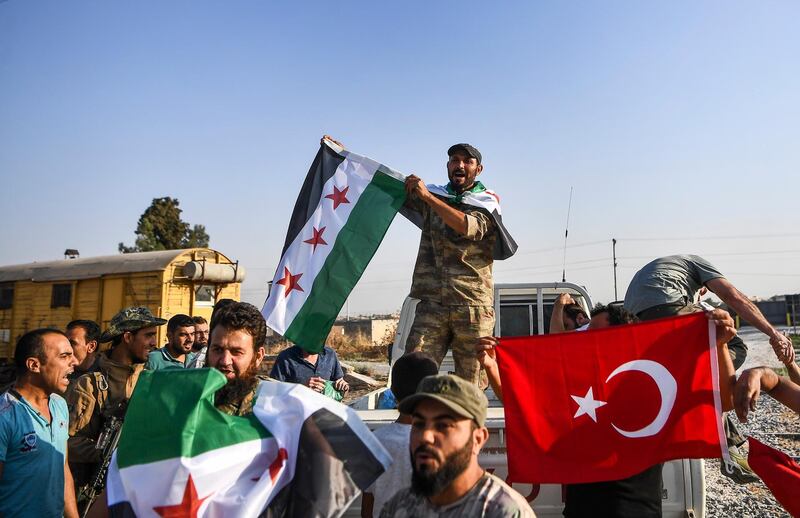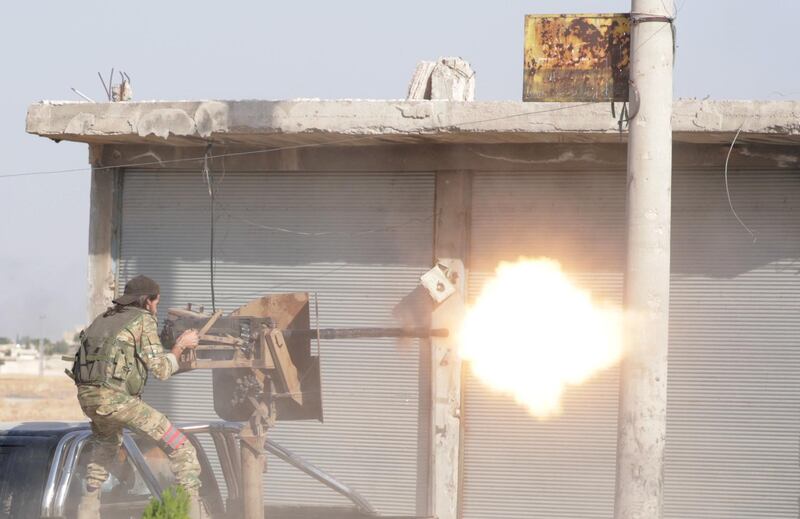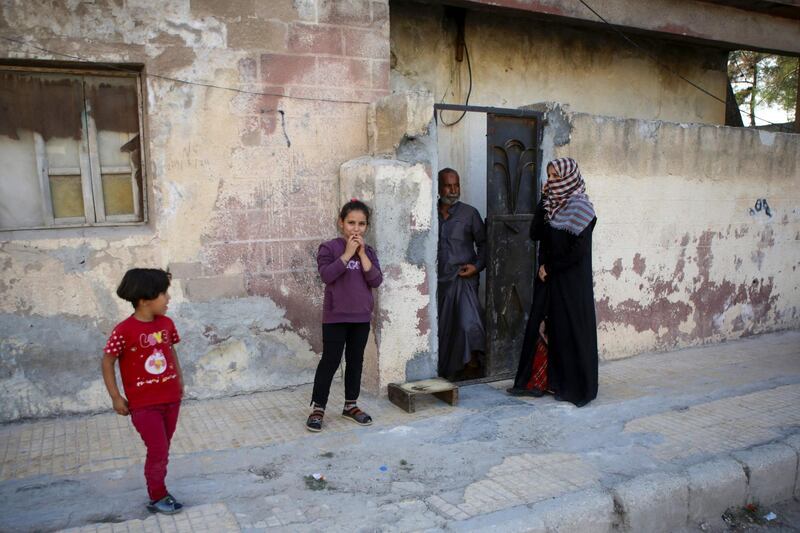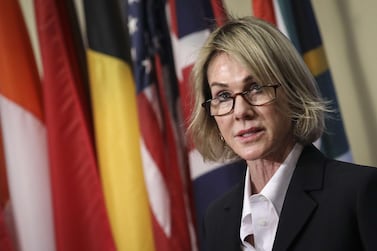Syrian government troops have entered the northern town of Tabqa as they move north against Turkish forces, Syria's state news agency said on Monday.
Regime troops also entered several villages on the southern parts of Raqqa province and were just six kilometres away from the border with Turkey, Sana reported.
State television showed soldiers carrying Syrian flags being welcomed by local residents.
Tabqa was a stronghold of ISIS and is on the road to the city of Raqqa, which ISIS declared its capital until it lost both in 2017.
The move towards Tabqa and nearby villages came a day after Syria's Kurds said the government agreed to help them fend off Turkey's invasion as US troops withdrew from the northern border area.
A top Kurdish official said the "preliminary military" deal with Damascus was limited to the army's move along the border and the two sides will discuss political issues later.
Badran Jia Kurd said government troops would enter border areas from the town of Manbij to Derik in the north-east.
He said the Kurdish-led authority was forced to look for ways to protect the region after the US allowed a Turkish invasion of the region.
Kurdish and allied forces will stand side by side with government troops along the northern Syrian border.
Sunday's announcement came hours after US officials said American troops would leave northern Syria to avoid being caught up in Turkey's offensive, which began five days ago.
Before the invasion, US President Donald Trump ordered American troops to step aside in a decision its Kurdish allies in the battle against ISIS regarded as betrayal.
Turkish President Recep Tayyip Erdogan on Monday welcomed the announcement by Washington that it was pulling out 1,000 troops from northern Syria.
"This is a positive approach," Mr Erdogan said.
He signalled on Monday that Turkish troops and their Syrian opposition allies were ready to launch an assault on the Syrian-Kurdish held city of Manbij.
"We are about to implement our decision on Manbij," Mr Erdogan said on Monday.
He said Turkey's aim was to return the city to the Arab people he said were its rightful owners.
Earlier, Turkish reports said Ankara's forces were waiting at the edge of Manbij.
On Monday, Syrian regime forces moved towards the Turkish border after the deal was struck.
Soldiers waving Syrian flags moved west of Tel Tamer, not far from the flashpoint border town of Ras Al Ain, which has been a key target of Turkish forces and their proxies.
Backed by the US, the Kurdish-led Syrian Democratic Forces battled for weeks to take Tabqa and the nearby dam and major hydroelectric plant from ISIS in 2017.
The Kurdish-led force had shrugged off Damascus' rule in 2012 at the height of Syria's civil war, when the Syrian government pulled out troops to focus on the fighting elsewhere.
This week's fighting has caused more 160,000 people to flee their homes so far, the UN said.
The UN's World Food Programme said it had so far provided aid to more than 70,000 people fleeing towns in north-eastern Syria.
“We are trying to reach as many people as possible and are dispatching emergency food packages as tens of thousands are fleeing their areas every day,” said the agency's director for Syria, Corinne Fleischer.
“WFP and other humanitarian agencies call on all parties to keep supply routes open and ensure unconditional, unimpeded and continuous access to people fleeing and those caught in the violence.”
After a meeting of all 28 EU foreign ministers and the UN envoy for Syria, Geir Pedersen, the bloc condemned the offensive, saying it “seriously undermines the stability and the security of the whole region”.
The EU said it also significantly undermined the progress achieved so far by the global coalition to defeat ISIS.
Earlier on Monday, UN Secretary General Antonio Guterres urged “maximum restraint”.
"The Secretary General emphasises that civilians not taking part in hostilities must be protected at all times," his spokesman said.
"Civilian infrastructure must be protected in accordance with international humanitarian law."
Nato Secretary General Jens Stoltenberg expressed similar concerns.
Addressing a meeting of Nato parliamentarians in London, Mr Stoltenberg demanded all of the 29 allies back a solution to the issue of ISIS foreign fighters who have been held in SDF camps since the group was beaten in its stronghold.
"We must not put in jeopardy the gains we have made against our common enemy," Mr Stoltenberg said.
He said that while the global coalition had defeated ISIS, the group had not gone away and could stage a resurgence.
Mr Erdogan said Turkey would not back down from its offensive against Kurdish fighters in north-east Syria “no matter what anyone says”.
“Our battle will continue until ultimate victory is achieved," he said.
Last week, the increasingly isolated Turkey defended its right to launch an incursion in self-defence under the UN Charter.
In a letter to the Security Council on Monday, Turkey said it was battling an “imminent terrorist threat” and ensuring the security of its borders from Syrian Kurds, who it calls terrorists, and from ISIS.
Turkey’s ambassador to the UN Feridun Sinirlioglu, said in the letter to the Security Council that its counter-terrorism operation would be “proportionate, measured and responsible".
